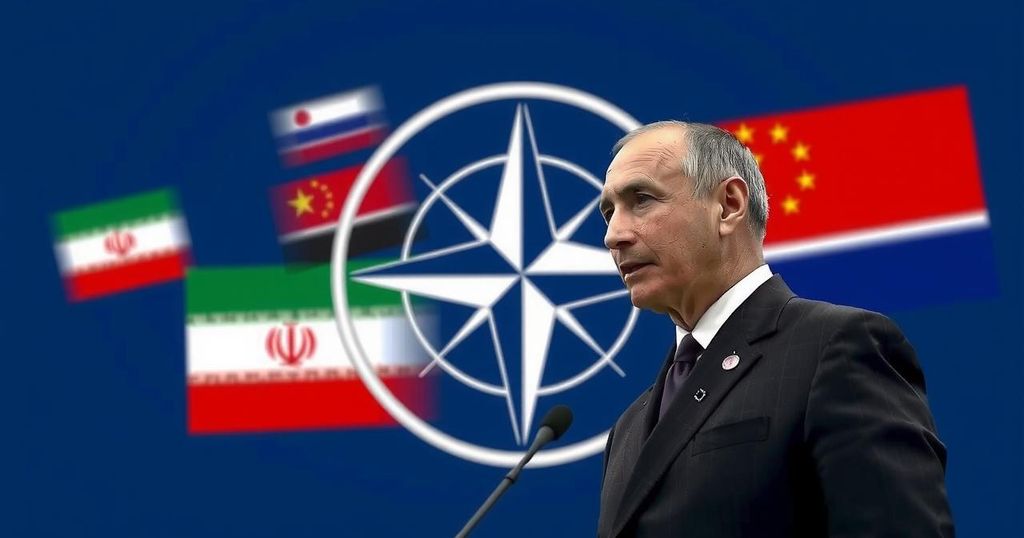NATO Chief Warns of Increased Threat from Russia’s Alliances with China, Iran, and North Korea
NATO Secretary General Mark Rutte warns that Russia’s alliances with China, North Korea, and Iran threaten global security, particularly in Europe and the Indo-Pacific. He emphasizes the importance of continued Western support for Ukraine amidst evolving U.S. foreign policy under President-elect Trump. French President Macron supports ongoing military aid to Ukraine, asserting that negotiations must involve Ukrainians and Europeans.
NATO Secretary General Mark Rutte issued a stern warning regarding the increasing collaboration between Russia and nations such as China, North Korea, and Iran, emphasizing that this alliance poses a significant threat not only to Europe but also to the Indo-Pacific and North America. Rutte’s address highlighted the necessity for transatlantic unity and reiterated the crucial support for Ukraine amid its ongoing conflict with Russia. During a meeting with French President Emmanuel Macron, Rutte expressed concerns over military assistance from North Korea and Iran to Russia. He remarked that China plays a vital role in bolstering Russia’s economy and enhancing its defense capabilities. Rutte asserted that the joint efforts of Russia with these nations endanger global peace and security, urging a stronger commitment from Western allies to support Ukraine. The uncertainty surrounding U.S. foreign policy following President-elect Donald Trump’s election raises alarms, particularly as Trump has previously criticized the extent of Western military aid to Ukraine. This has fostered apprehension in Kyiv and among other European leaders regarding the United States’ future engagement in the region. As the conflict in Ukraine intensifies, Ukrainian officials aim to solidify their position for forthcoming negotiations by augmenting military assistance and maintaining resilience on the battlefield. Rutte insisted on the importance of recommitting to the conflict, advocating for increased support to change its trajectory, thereby imposing a greater cost on Russian leadership. President Macron echoed Rutte’s sentiments, assuring that France would persist in providing aid to Ukraine until deemed necessary. He emphasized the principle that future deliberations concerning Ukraine and Europe should exclusively involve the Ukrainians and Europeans.
The escalating cooperation between Russia and nations such as China, North Korea, and Iran has significant implications for global security. NATO officials view this collaboration as a nexus of authoritarian regimes that could destabilize not only Europe but also other regions like the Indo-Pacific and North America. This context sets the stage for ongoing military support to Ukraine as it continues to resist Russian advances following the invasion that commenced in 2022. The situation has been exacerbated by changing political dynamics, particularly with the upcoming U.S. administration, which could influence international aid and diplomatic approaches to the conflict.
In summarizing the ongoing situation, NATO Secretary General Mark Rutte’s remarks underscore the urgency of continued transatlantic unity in supporting Ukraine against Russian aggression. His warnings about the collaboration with authoritarian regimes highlight the broader implications for global security. As the conflict evolves, the commitment of Western allies will be crucial in determining the trajectory of peace efforts and military support, ensuring that regional stability remains a priority.
Original Source: www.usnews.com




Post Comment